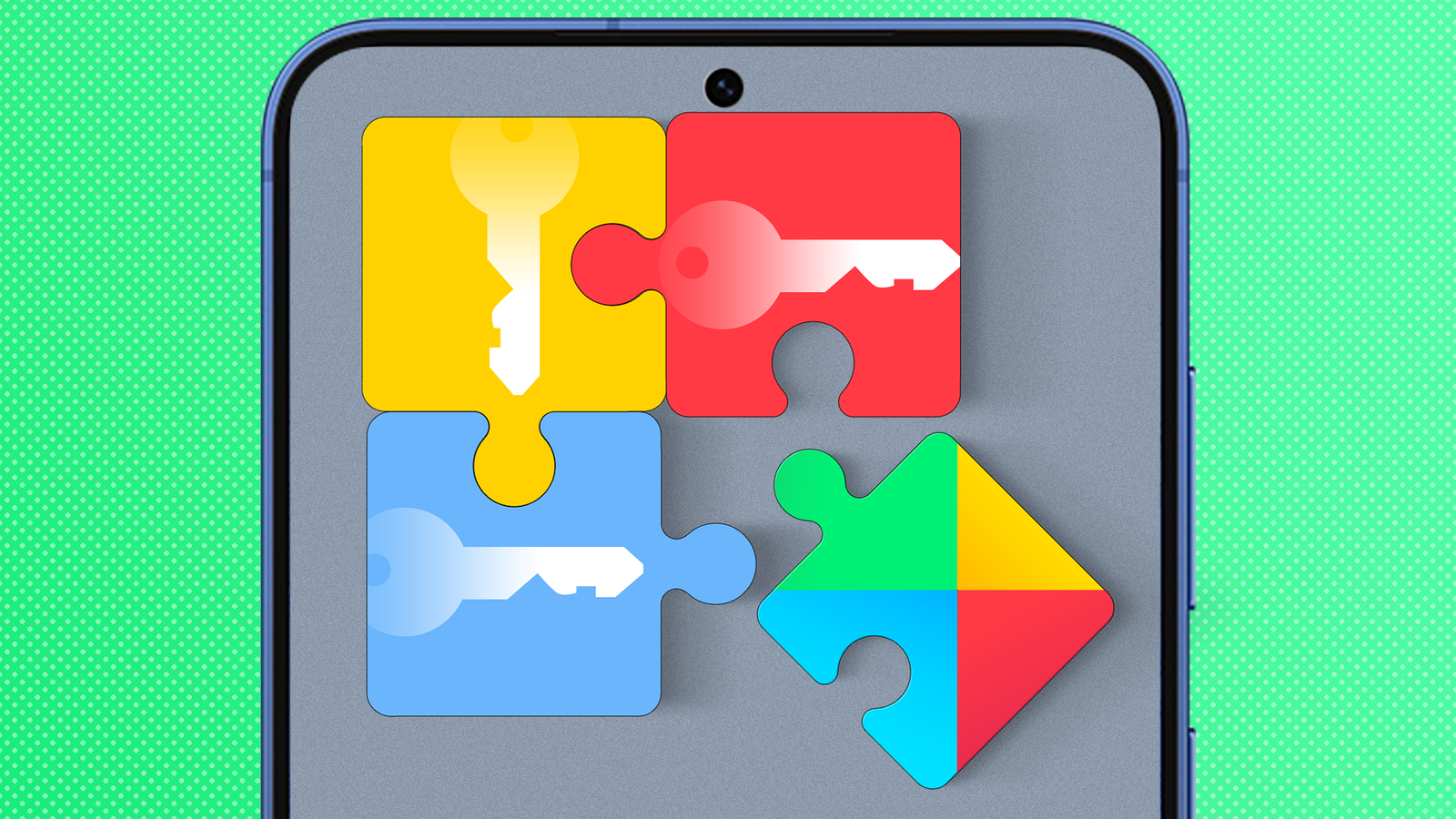- cross-posted to:
- degoogle@lemmy.ml
- privacy@programming.dev
- cross-posted to:
- degoogle@lemmy.ml
- privacy@programming.dev
De-googled phones exist, but they’re rooted or using a custom firmware. Usually, these phones spoof Google Play Services, replacing that layer with something called MicroG.
So root and flash your phone today!
Got a pixel? Check out calyxos, it’s a free system upgrade that rips out anything google but allows almost everything to work, even the play store and all your usual games and bank apps.
E: nevermind. It was great while it lasted.
Literally dead for now… Had chaos with leadership
Soon of a bitch 😓
Well, that was fun.
I really hope one day these alternatives will run on non-Google devices. I really don’t want to give them money.
If you have a Pixel, then GrapheneOS is the sensible choice. Not least because it currently only works with Pixels anyway.
I absolutely do not want to run Google binaries on the phone, graphene doesn’t support microG and instead want you to run Google’s binaries on your phone, just sandboxed.
I hate that idea.
You don’t have to run any Google stuff at all, if you don’t want to.
What moron is willingly still purchasing pixels? Might as well put a livefeed camera for Google HQ in your home lol
I bought a Pixel 9 with the sole intention of putting Graphene on it. I wasn’t massively down with giving Google money, but my provider offered it to me for £30, then £30 a month on contract. Can’t argue with that.
If you tear out the parts that talk to Google, then the phone hardware isn’t spying on you. It’s just hardware.
The critical piece tying your phone to Google every 3 minutes is called “play services”.
Calyxos was an OS for the pixel hardware that replaced play services with a FOSS library (called microG) which tricked regular apps into thinking they were talking to and getting responses from Google, when it was actually all happening on your phone.
- By forcing you to use a non-anonymous Google Account.
- Then tying it with Google Play Services on that device.
- Google Play Services are like a combo of arteries and nerves of Android OS.
That’s how.
Aurora Store, Fdroid etc. Graphene or similar OS. They got greedy - now they get nothing.
me laughing in de googled phone. my phone as never had had my gmail address typed in it.
How do you read your email?
there’s email providers other than gmail
He said he has a Gmail account though.
Fastmail.
On desktop
Good thing I mostly use F-Droid (because finding anything useful on Google Play is a pain)
That doesn’t stop or turn off google services, or services framework, or safety scan, or scanning your images, or reading your contacts and phone logs, what apps you use, when you use them, biometric data, location data, etc.
You can mitigate against these by limiting permissions or appops with adb or shizuku enabled programs.
Uninstall/disable as many google apps, components, and services as safely possible.
Use a DNS filter to block Google from sending data, DNS rebinding, and using mdns for internet.
Or go all the way and use graphene or similarly degoogled OS.
It bitches very often when you disable Google Pain Services.
You can’t delete the 1GB malware either.
Google Pain Services
Not sure if typo or intentional joke
deleted by creator
I’d say that depends on exactly what you’re trying to protect. They’re both large American companies with control over your data and your data and metadata will end up in their respective clouds. Push notifications will be handled by Google services if you use Android, but there’s an equivalent mechanism for iOS just that it uses their servers. They handle some details differently, but I don’t think any of those options deserve the word privacy.
There are some user friendly Android based alternatives out there, since it’s based on open source. Personally I’m running a device with /e/OS, which you can either install yourself or buy a phone with it pre-installed. There are also some other user friendly options out there such as the Volla Phone.
But yeah, iOS is probably a better bet than stock Android, as Apple has a history of being abusive towards their customers in other ways than by selling their data. But crucially both Google and Apple are American companies, so you should avoid depending on their cloud services to whatever degree possible. There’s no such thing as safe data if it is stored by an American company.
You’re just changing the bucket which the data is dumped into and the interface used. It’s an unfortunate reality that you need to research and be willing to take charge of your devices to proactively prevent spying.
GrapheneOS, /e/ OS, and other community ecosystems are mandatory to have complete data security. Google and Apple will never directly grant you the permission to turn all the data taps off.
But if a Graphene device takes a non-malicious approach to data management out of the box, can’t you just buy one of those instead of doing research and taking charge of your device to proactively prevent spying? Why not just let a trustworthy organization like the Graphene project manage it for you, instead of an untrustworthy one like Apple?
“A graphene device” doesn’t exist. GrapheneOS must be installed after purchasing a compatible device (Currently the Pixel line, but soon to be expanded to another manufacturer).
You can buy a phone that arrives running GrapheneOS. This might not be advisable, because it adds another point of trust in the refurbisher who actually does the flashing, but you don’t need to have the skills or do the research to install it yourself to get access to a device that runs it.
Yes, but that is incredibly risky and I would argue a worse proposition for one’s personal data than buying an Android device or iPhone direct from manufacturer. You don’t know if any of the underlying system software components are compromised from a reseller. If you bought a used Pixel, reformatted the storage, and installed GrapheneOS fresh, you can be confident that the OS is untampered.
I would go as far as to say buying a preinstalled device would never be a good idea for any individual looking to use GrapheneOS. The tutorial for the installation is confined to a single webpage. People should learn to read the instructions and use the validation tools on GrapheneOS’s site.
Looking just at location… Apple is actually better at location tracking precision than Google, and you can’t turn it off (even powering off your phone doesn’t shut it off). Disabling location services doesn’t prevent the data collection by Apple, it only blocks apps from using it.
Apple is probably better at not sharing your data with others than Goolge, but that’s a position of faith, not fact. If you trust Apple and are diligent about blocking location access to 3rd party apps, it’s better. But you should expect that if you’re giving location access to a free app (like Google maps, a weather app, a ride share app, a streaming app, etc.), you can bet they are selling your location data.
The last time I read the Apple privacy policy it sounded like they pretty much collect everything and let themselves share this data with whoever they feel like.
There was a lot of calming language, but it didn’t sound convincing to me.
That being said, if you like the Apple ecosystem and UX, it’s a solid option.
I personally believe their statements about privacy are nothing more than PR.
The only reason they dont share it with other apps, is because from a capitalist standing point, why the hell would you share information you want to sell?
Them being the only one having access to a billion peoples location data is why they are the richest company.
They very much do dell, and they very much share that data with the government they also pay a shitton of money in donations for ball rooms.
FWIW, from my last reading of their privacy policy, they openly stated that they do share PII with other companies who they consider to be their partners.
They claim that they don’t share PII with third parties “for their marketing purposes”.
That being said, you’re at the mercy of their definition of “partner” and interpretation of “for [the third party’s] marketing purposes”.
I should honestly just re-read their privacy policy (and the same for Google and Meta).
AFAIK google doesnt share your data that much outside of being very permissive to law enforcement, their main thing is advertisement, kinda of a indirect sell, as in it is your data that brings value to their advertising since thats how they do their extremely invasive targeted advertising
This is the correct comment. Google sells access to user data, not the data itself.
From an actual privacy standpoint, what is the difference?
Not much I suppose. At least in case of Google, it’s governed by a single policy.
i’d say so. i was a professional Android dev for years, and security and privacy are definitely one of the reasons i prefer iOS. i don’t have time to play with my phone so much for my personal device. Apple is the lesser of 2 evils since their business model doesn’t depend on this kind of tracking (even if they do it as well albeit to a lesser extent)
Their service line was growing much faster than hardware, it is a big part of their business. So their business model does depend on data collection.
You’re talking about services? That’s like Apple Music, TV, iCloud storage, etc. That’s different from Google scanning your emails to extract purchase information from order confirmations, logging all search activity, collecting data from third party websites that have Google code embedded in them, etc.
I am just curious, have you ever read Apple’s privacy policy?
What makes you think they don’t log your searches?
Apple doesn’t have a search engine
So have you or have you not read the Apple privacy policy?
Where did I say Apple has a search engine? I said Apple tracks and logs your searches.
If you think there is something to cite in the privacy policy, go ahead and cite it. It’s not my job to make your argument for you.
In reality, I think you’re being deliberately obtuse because you want to defend Google’s business practices for some reason. You’re conflating the way Google collects sensitive user information for the purpose of advertising in every single one of its products, including from non-Google apps and webpages with some technicality around verbiage in a privacy policy, which you have not even cited yourself.
Let me install some software on your devices and I’ll show you how to track searches without operating a search engine.
Yes, but Graphene is even better. The downside is that Graphene doesn’t currently support non-Google devices.
That’s my problem with it. I don’t want to support Google, so I avoid their OS. However the alternative requires that I support them and buy their phone.
I’m looking forward to seeing which other manufacturer they’re aiming for.
deleted by creator
Holy shit, this article is garbage… the base premise that Play Services can access anything is true, but so many bad claims.
Google Play Services is a system app on phones that ship with Google services, and is the case on the author’s phone too, since he could only disable the app, not delete it. System apps can still be updated separately from the system, if their signature matches the updated version’s signature.
Also, I don’t think they dedicate enough time to describe just how much data Google gets through your device, like how it logs your location for Google Maps’ business popular times indicators and traffic metrics, or how they use all of your data to give you hyper-targeted advertising.
As for microG, it also runs with elevated permissions on most custom ROMs, and for some features (eg. integrity checks) it downloads & runs Google-made programs (eg. DroidGuard) with strong privileges. DivestOS (now discontinued) used to run microG in a sandbox.
There are ways to run Play Services as a normal app if the custom ROM has a compatibility layer for it, like GrapheneOS, where you can selectively enable permissions for Play Services. Of course, if you refuse some permissions, some features will break (eg. refuse SMS/call access and RCS will break), but it’s a mostly usable situation.
Holy shit this is rage bait. What a title.

Yeah this is what passes for tech journalism nowadays
I dont understand… Its describing what android does. How can that be rage bait?
Nobody will rage over any of this. Its common knowledge already. Its the same thing that has been discussed for years.
I have GrapheneOs installed which sandboxes any google bullshit needed for specific apps to run.
easiest way to stop that ☞
pm uninstall --user 0 com.google.android.gsf pm uninstall --user 0 com.google.android.ims pm uninstall --user 0 com.android.vendingDoing this Bricked my phone.
Skill issue
Nope
i used this on many phones from different brands. It may break some apps (that can be replaced with foss alternatives) but it never bricked any phone. 🤷
there are communities on xdaforums.com or xda-developers.com for specific models where you can find more detailed information
Are these the only packages Google uses for this purpose?
afaik, yes. this disables play services, as well as store (vending)
The article seems to go directly from “this piece of software talks to all the sensors and isn’t well sandboxed” to “Google has directed this software to profile and surveil users” without actually providing evidence to support that leap. Is Google Play Services sampling your location so that it can send it in to Google HQ as part of a secret location tracking operation that runs without user consent or knowledge, or so that it can detect if the device has been stolen by the cops and use its proprietary ML model to activate anti-theft mode to protect the user’s privacy?
If we can actually show mismanagement of user data by Google Play Services, we need to shout it to the hills, because those sorts of scandals are important arguments for increased privacy protections. But we need to actually find that mismanagement occurring, not just assume it must be because Google wrote the code and it isn’t open source.
deleted by creator
This right here.
Don’t be intentionally naive.
It’s not that I want to give them the benefit of the doubt, it’s that the article neglects to bring in that whole thread of the argument that you give here. This should all be in the article.
Part of the problem with this stuff is that the corporations using it are very hush-hush about what exactly they use it for. The privacy policy just lists what they may collect (everything) and what they may use it for (anything).
Is Google Play Services sampling your location so that it can send it in to Google HQ as part of a secret location tracking operation that runs without user consent or knowledge
Yes they track your phone’s location and movement constantly, but it’s not a secret.
For an example of the evidence you seek… Google SensorVault location data was how they identified and convicted the January 6 terrorists. You might argue that complying with warrants isn’t misuse of the data, but I’d argue that both the data itself, and the level of precision and detail, shouldn’t be captured and logged in the first place. And I’m fairly sure that most google customers have no idea how pervasive and extensive the tracking is.
The SensorVault data is “just” the Google Maps Timeline data though, right? Which people have always been able to turn on and off, if they knew about it.
I feel like Google not really respecting a concept of user consent and pretending people agree to poorly-publicized and often-modified tracking programs is a different, and, frankly, weirder, privacy problem than there being closed source stuff running with high permissions. If you could revoke permissions from Play Services, or if it was source available or even free software, that wouldn’t solve the problem because it would still be able to do stuff Google had manufactured consent for it to do.
When you open the maps indoor you get immedieate location. This is not from GPS but from Wifi and cell tower data. This is only possible because your phone constatly transmits your location and network data. You can also call it surveilance because its 24/7 logging and processing of your location data.
Do you mean “transmits” as in “from the location service on the phone to the mapping app on the phone”?
Or do you mean the phones are all updating the wifi SSID geolocation database, which they then all can use for doing wifi-based geolocation?
yes the SSID database
does not happen to me, probably because i keep mobile data off and in the developer settings there is a keep mobile data always option that is enabled by default, for “fast network switching”, I disable it and beyond that I disable google playservices and all google related or adjacent apps that cant be uninstalled from my oem rom
If you don’t collect the data in the first place, there’s nothing to mismanage.
Rather than users having to prove that Google is mismanaging OUR data, Google should prove it has a need to collect, aggregate, and sell access to that data beyond surveillance capitalism.
The default option should be that only fully anonymized data that is essential to device functions should be collected, and this should be validated through an independent audit. Everything else should be opt-in.
But they aren’t even showing collection of data in the article. For the data to be collected, it needs to leave the phone, not just be touched by Play Services.
Play Services does collect data it shouldn’t collect, by sending it back to Google. But the difference between “I am collecting your data” and “I wrote software you are running” is important and needs defending, because obscuring it is one way that independent developers are prevented from publishing and marketing actually-privacy-preserving software. If I am deemed to have “collected” your personal data every time you type it into a text editor I wrote, I can no longer distinguish my local-only encrypted text editor from Google’s one that stores all your data unencrypted on their cloud. We both have to say we “collect” your data, and nobody non-technical can tell the difference.
Play Services does collect data it shouldn’t collect, by sending it back to Google.
Right. And my argument is that this shouldn’t happen without users opting in.
But the difference between “I am collecting your data” and “I wrote software you are running” is important and needs defending,
I don’t disagree. Not am I arguing the content of the article. I just disagree with your notion that we have to prove negligence or malfeasance to deserve privacy.
Your original post placed the burden on users to prove that Google mismanages the data they collect. That’s not how this should work. I should own that data, just as I own the text I write with a text editor. I shouldn’t have to prove that Google is mismanaging it in order to keep that data private. I shouldn’t need any other reason than “it’s my data and I don’t want to share it beyond what is necessary for this technology to operate.”
I don’t think the burden should be on users, but I do think some of the burden should be on the press. If the press just assumes Google is up to no good and never does the investigative reporting needed to show it, we will miss out on having very politically useful evidence.
Yeah, journalistic integrity is important, and they shouldn’t slander Google, due diligence and what not.
But there wouldn’t even be a need for an article or any investigation if Google and other tech companies weren’t treating user data as something they have a god given right to.
That’s my point. It doesn’t matter what Google does or doesn’t do with the data. They shouldn’t collect it unless I tell them they can. It’s MY data. It’s MY right to keep it private or destroy it as I please. That’s the baseline all tech companies should adhere to.
Trade paranoia against backdoored custom roms? Hm… 🤔


















